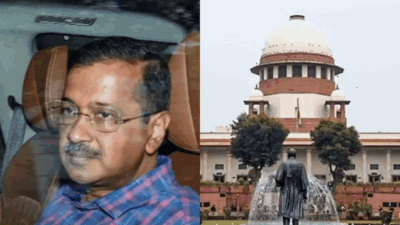
The ruling came as the court evaluated the evidence and arguments presented regarding Kejriwal's role in the controversial liquor policy case. The CBI had arrested Kejriwal under allegations of corruption, which centered around the policy that was intended to regulate liquor sales but was later repealed. The case has generated substantial public and media attention, with legal and political implications extending beyond Delhi.
According to the court's findings, the evidence collected pointed to significant procedural and ethical concerns surrounding the implementation of the liquor policy. The CBI's investigation revealed potential misconduct and irregularities in the process that led to the policy's introduction and subsequent revocation. The court's decision to uphold Kejriwal's arrest underscores the seriousness of these allegations and the necessity of a thorough investigation.
The liquor policy in question aimed to overhaul the existing framework governing liquor distribution and sales. It sought to introduce new regulations that would ostensibly streamline the process and increase revenue. However, the policy faced widespread criticism and was eventually scrapped amid allegations of corruption and mismanagement. The arrest of Kejriwal has been a focal point of the investigation, with critics and supporters alike closely watching the developments.
The court's decision also reflects on the broader implications for political leaders and public officials facing similar allegations. The ruling emphasizes the judicial system's commitment to ensuring accountability and transparency, irrespective of an individual's political status. This case could set a precedent for how allegations of corruption are handled at the highest levels of government.
In addition to Kejriwal's arrest, the investigation has led to the scrutiny of several other individuals involved in the policy's implementation. The CBI continues to gather evidence and interrogate witnesses as part of its ongoing probe. The high court's ruling is expected to influence the direction and scope of the investigation, potentially leading to further legal actions.
Political reactions to the court's decision have been polarized. Supporters of Kejriwal argue that the arrest is politically motivated and an attempt to undermine his administration. They contend that the charges are part of a broader campaign to discredit his leadership. On the other hand, critics assert that the legal process must be allowed to take its course and that accountability should be upheld regardless of political affiliations.
The impact of this case extends beyond Delhi, with implications for national politics and governance. As the investigation progresses, it will likely influence public perception of political integrity and the effectiveness of anti-corruption measures in India. The Delhi High Court's decision is a critical juncture in this ongoing legal and political saga, highlighting the intersection of law, politics, and public trust.
